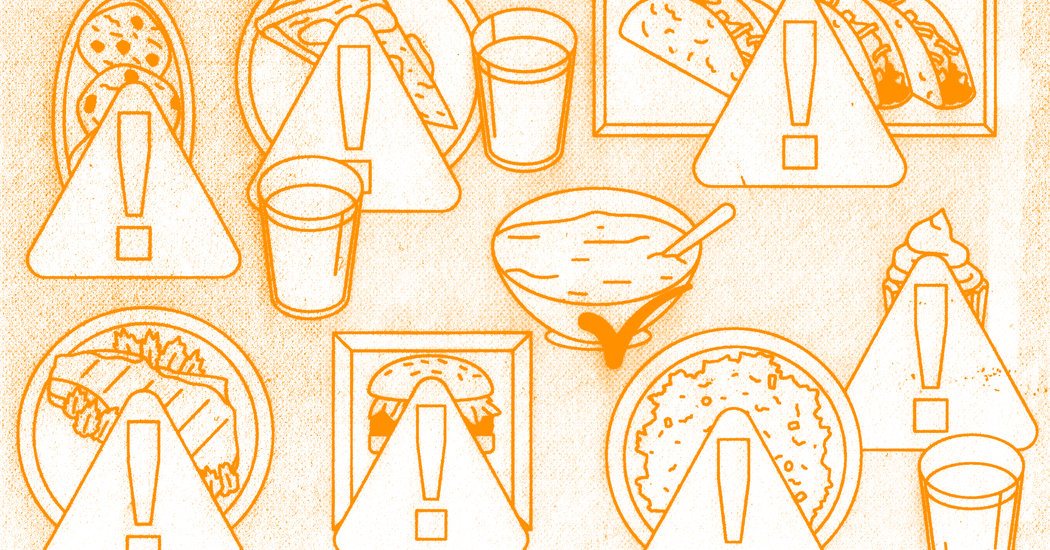
Welcome to The Edit newsletter. Each week you’ll hear from college students and recent graduates about issues going on in their lives. You also may hear from me, Lindsey Underwood, editor of the newsletter. Sign up here to get it in your inbox.
Before January, I hadn’t had a Krispy Kreme doughnut or Chick-fil-A nuggets since I went gluten-free, at age 11. Those first few bites of were absolute magic, but what surprised me most about going back on gluten was its effect on my social life.
What?
In sixth grade I had a host of unexplainable health issues that kept me from dancing, which was my world at the time. Desperate to get back into ballet class, I finally went off gluten and made some other dietary adjustments, at the recommendation of a naturopathic doctor. I was a bit skeptical, but when my symptoms disappeared almost overnight, I was sold on the diet.
I would get sick for a week whenever I ate gluten by accident, so I was never tempted to try it intentionally until earlier this year, when I was about to study abroad in Italy. I worried that in the land of pasta I wouldn’t have enough to eat, so before the trip I anxiously nibbled some bread. I didn’t get sick like I had in the past. That’s when my food freedom began.
After three months in carb heaven, I returned to school. I started to actually look forward to going to “the caf” with friends instead of dreading my limited options there. I also realized how often I had said no to outings that revolved around food. When the main draw of a sorority event was cookies, or friends wanted to go out for pizza, it had become a reflex not to go.
It turns out a lot of my classmates can relate. “It can feel like a lot of your life is dictated by food,” said Joy Hatcher, a student who sticks to a vegetarian diet.
“It’s hard not to feel like a burden when you’re the one forcing everyone to go somewhere else, or like a killjoy when you’re trying not to dampen the mood with your empty plate,” said Baylee Vargo, whose diet excludes natural and artificial sugars, as well as starches, dairy and gluten.
Sadly, after a few months respite my symptoms reappeared, so I’m gluten-free again. But after seeing how much my diet had been restricting my social life, I’m hoping not to revert to those old habits.
So what can I do? I asked some of my classmates with special diets for some advice:
Be chill
“I have had to learn how to really enjoy just being with people, even if I have to watch them eat,” Baylee said. “It takes a lot of mental fortitude.”
“l just try to have a really good attitude, be prepared and be really chill about it,” Avery Lorio, who is vegan, said. Finding joy in her diet, even with its difficulties, has helped. “The effort is worth it, and it’s worth it to have a good attitude.”
Get in the kitchen
Baylee said sometimes telling people about her diet can evoke pity. “I think they don’t realize that I have a lot of things I can make for myself. I really enjoy a lot of the food I eat.”
Sharing food might help. Chloe Smith, also a vegan, tries to cook for friends on a regular basis. “Especially when I first went vegan, I did a lot of taco nights with friends to take control and make sure there’s food I can have,” she said. “One of the most satisfying things is feeding a nonvegan friend something vegan watching them like it.”
Avery is a fan of making substituted versions of her favorite foods. “Try to replace your food instead of just restricting it,” she said.
Find your people
Joy says finding a friend with similar restrictions made things easier. “One of my best friends is vegetarian. We go out to eat at a lot of Asian restaurants together,” she said, because they tend to have more vegetarian options. Regardless of whether your friends share your diet, “it’s important to surround yourself with people who understand,” she said.
Be prepared
“Don’t be afraid to bring your own snacks,” Joy said. “I’ll throw some macadamia nuts in my bag to go places, or even bring my own sauce and dressings to make otherwise bland options at restaurants more fun,”
“Always have a backup plan for food and be really creative about manipulating a restaurant menu into food you can eat,” Chloe added.
Choose wisely
If it’s hard for your friends to relate, “don’t be afraid to speak up for yourself,” Joy said. “I’ll be very vocal in the restaurant choice, especially when it’s with friends who I’m comfortable around.”
“Real friends will want to include you even if it means compromise,” Hannah said. “They should be understanding, so if they’re not, they’re probably not really your friends.”
What We’re Reading
How to Deal With a Jerk Without Being a Jerk It’s natural to get defensive, but that only escalates the cycle of aggression.
The Royal Baby: Frequently Asked Questions Everything you don’t need to know about Meghan Markle and Prince Harry’s child.






